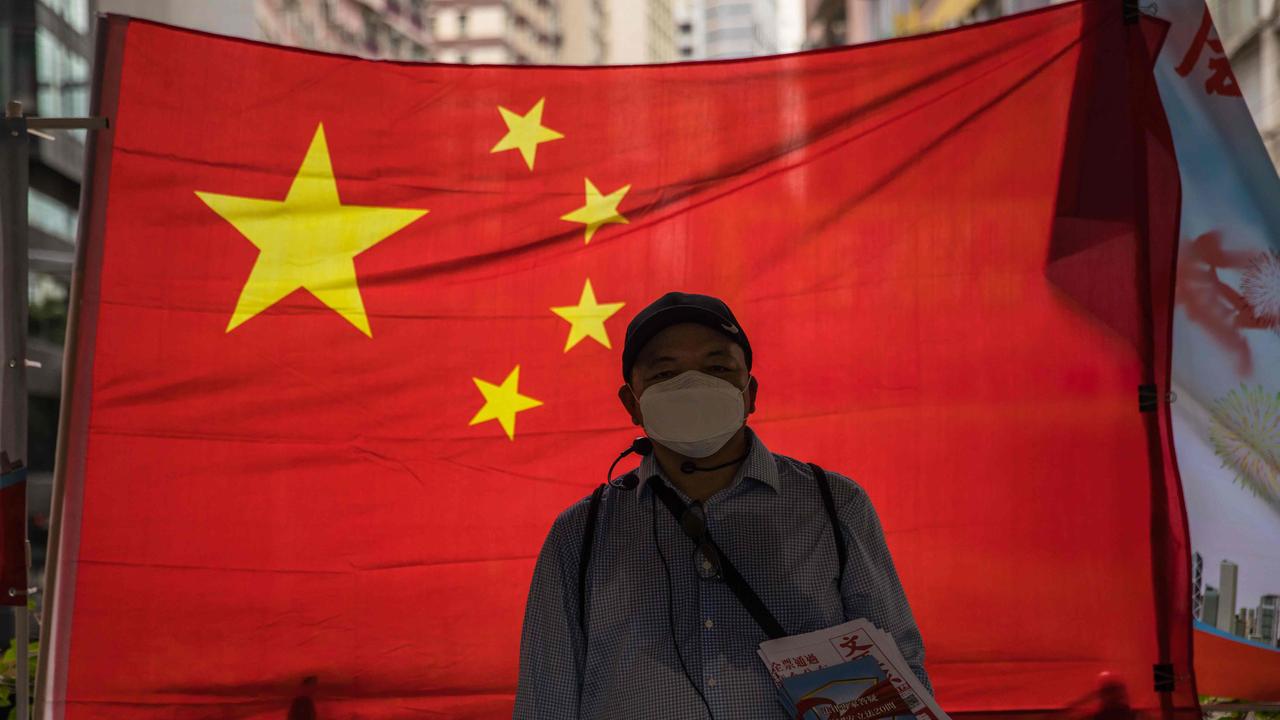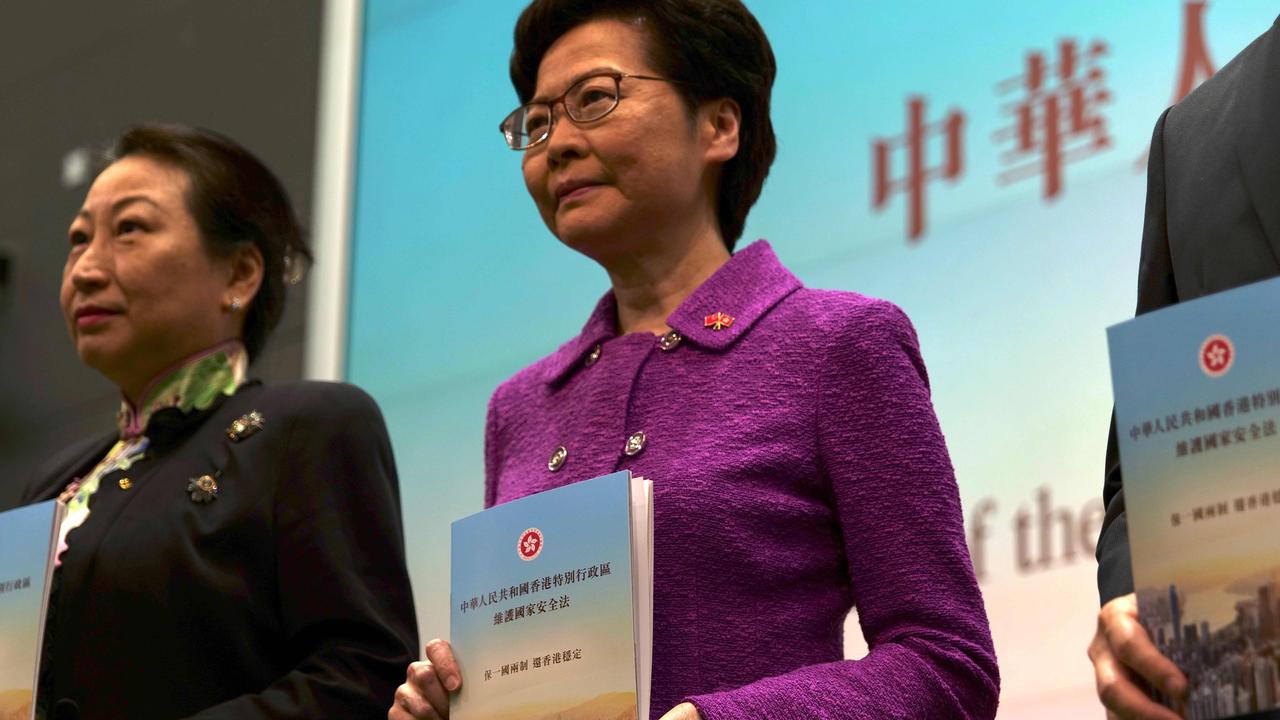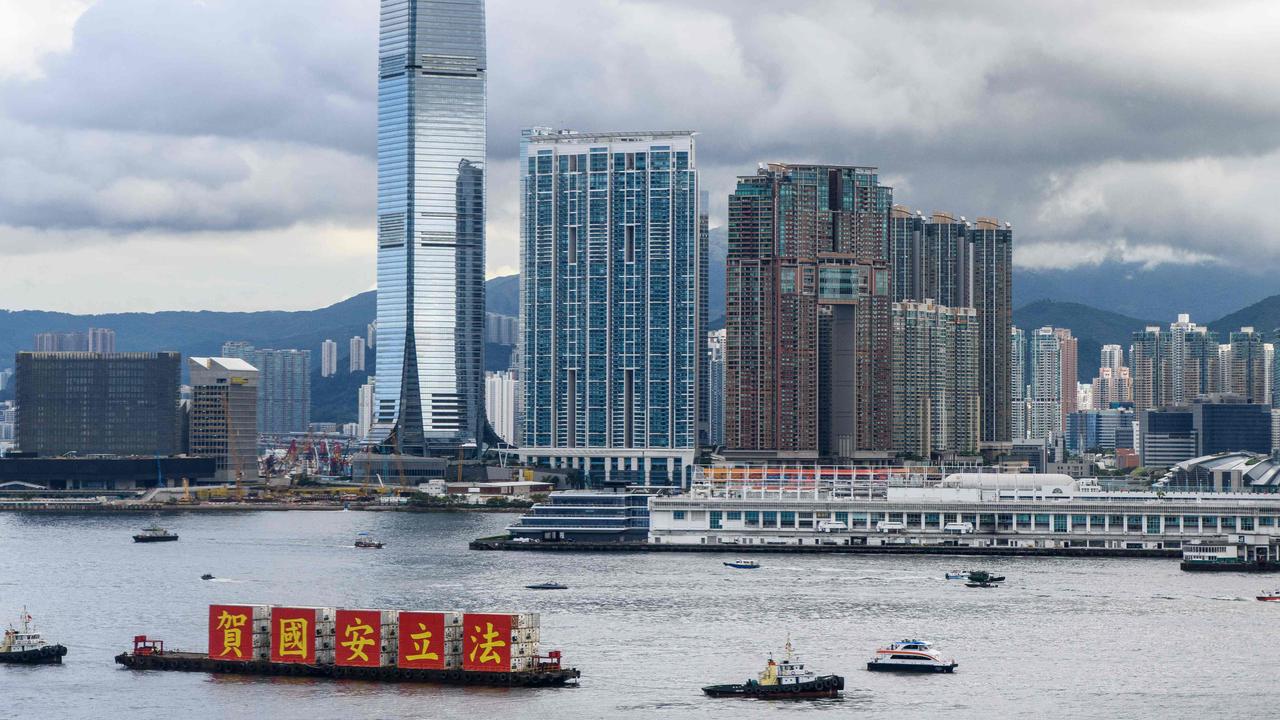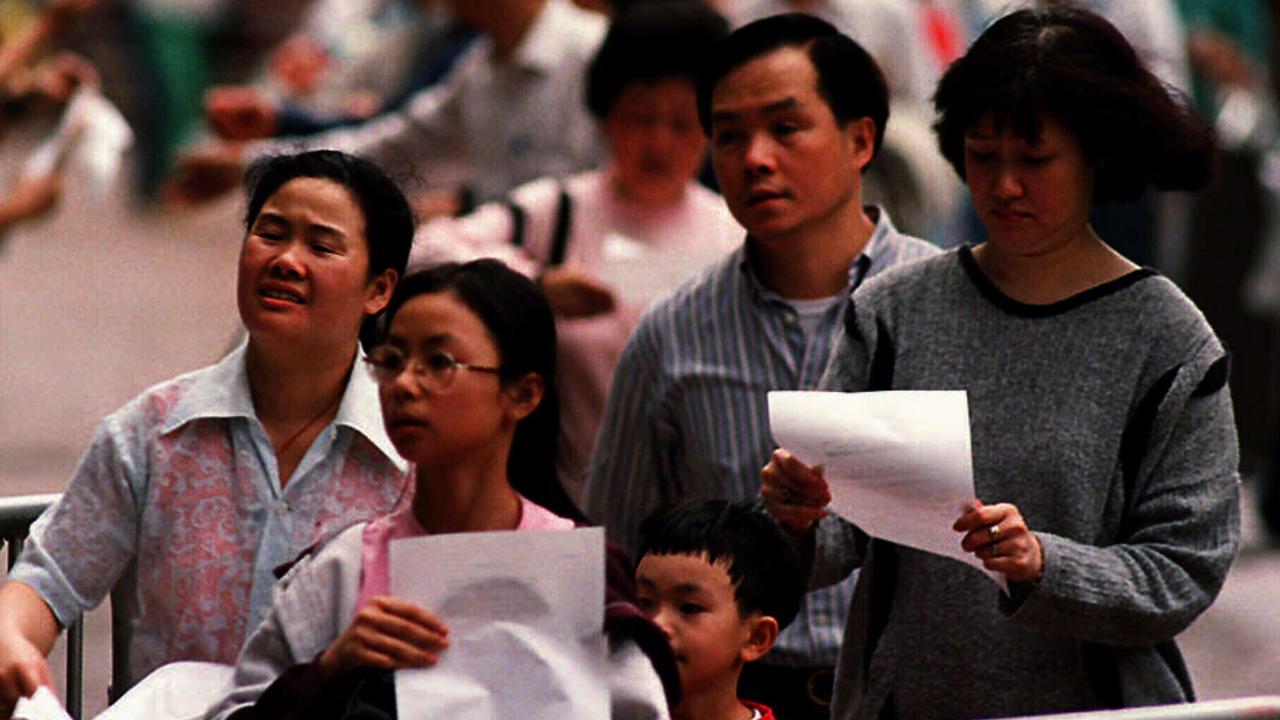Hong Kong national security law: Words that have come back to haunt China
A statement made by Beijing three years ago is proving to be rather awkward now its trying tell other countries to mind their own business.
Any hope that Beijing might have take a softly, softly approach to the introduction of hugely controversial new security laws to the supposedly autonomous region of Hong Kong appear to have been dashed in recent days.
Ten people have already been arrested for breaches of the law and pro-democracy books have been pulled from Hong Kong’s libraries. Indeed, one newspaper, widely seen as a mouthpiece of the communist regimen, reported the books removal was “inspiring to see”.
However, Beijing appears to have tripped up on its own words when admonishing the UK over its condemnation of the laws.
RELATED: Australia ‘deeply concerned’ over national security law for Hong Kong
The UK agreed to hand Hong Kong back to China in the 1990s and has now enraged Beijing by offering three million Hongkongers a path to British citizenship. Comments made by the China’s foreign ministry in 2017 regarding that agreement has come back to haunt it.


‘CLEAR BREACH’ OF UK-CHINA AGREEMENT
On 30 June, Beijing imposed its new national security law on Hong Kong.
The law’s full details, which were kept secret until they came into force, criminalised a broad and ill-defined range of acts under the headings of secession, subversion, terrorism or collusion with foreign powers.
Many of the crimes carry a sentence of life imprisonment and, for the first time, those who fall foul of the law can be deported to the Chinese mainland for trial under Beijing’s more opaque legal system.
Hong Kong’s leader Carrie Lam has said it filled a “gaping hole” in the country’s legal system.
Critics have said Beijing now has open slather to prosecute dissent in its fractious territory and it does away with any pretence of the “one country, two systems” model which China agreed to when Britain gave up sovereignty in 1997.
The Sino-British Joint Declaration, to give it its full name, promised the rights and freedoms enjoyed by Hong Kong citizens would remain in place for at least 50 years after the handover. Communist and totalitarian Beijing would effectively keep its nose out of day-to-day life in capitalist and at least semi-democratic Hong Kong.
It also stated the Hong Kong residents, who up to 1997 had been British, would not automatically have the right to live in Britain.

Last week, British Prime Minister Boris Johnson said the new law was a “clear and serious breach of the Joint Declaration”.
He said the UK will now allow up to three million Hong Kong residents, those who were alive at the time of the handover, to apply for the status of a British National Overseas (BNO) and move to Britain if they wish.
This hasn’t gone down well with Beijing. Chinese foreign ministry spokesman Zhao Lijian said all BNO passport holders were Chinese citizens first and foremost.
All HK compatriots including BNO holders, are Chinese citizens. According to the MOU, UK promised not to grant BNO holders residence permits. However, UK insisted to change this policy, and reneged on its own promise.
— Lijian Zhao èµµç«‹åš (@zlj517) July 2, 2020
pic.twitter.com/CdF0Pw4D5d
“Before Hong Kong’s return to China, the British side clearly promised that it would not grant residence permits to BNO holders,” he said last week.
“Now the UK is in total disregard of China’s position, in grave violation of its own promise, international law and basic norms governing international relations.”
Mr Zhao warned darkly of “consequences” if the UK proceeded with its citizenship plan.

CHINA’S AWKWARD STATEMENT
But awkwardly for Beijing, it – not Britain – was the first to shrug off the Joint Declaration, saying three years ago that it was only a mere “historical document” and was no longer binding.
On June 30, 2017, two decades to the day after Britain handed over Hong Kong, another Chinese foreign ministry spokesman dismissed the agreement.
“Now that Hong Kong has returned to the motherland for 20 years the Sino-British Joint Declaration, as a historical document, no longer has any realistic meaning,” Lu Kang was reported as saying at the time in Hong Kong newspaper, the South China Morning Post.

“It also does not have any binding power on how the Chinese central government administers Hong Kong. Britain has no sovereignty … over Hong Kong.”
Despite the new law, China insists “one country, two systems” is alive and well and won’t be affected.
In recent days, Beijing has said international criticism of the new law is a “gross interference in China’s internal affairs”.
But already, a number of major countries – including the US and Canada – have begun stripping back preferential trading terms and suspending extradition treaties with Hong Kong.
On Thursday, Prime Minister Scott Morrison said the new law was “very concerning” and Australia was prepared to “step up and provide support” to Hongkongers, although he didn’t confirm whether that would include residency.
China’s Mr Zhao warned Australia to not “go further down the wrong path”.

BOOKS REMOVED FROM LIBRARIES
The shadow of the new law is already being felt. Several people were arrested last week for breaching its powers.
Pro-democracy activist Nathan Law has fled abroad saying, “so much is now lost in the city I love: the freedom to tell the truth”.
On the weekend, the SCMP reported that books by pro-democracy figures had been removed from public libraries days after the new law came into effect.
They will reportedly be reviewed to see if they violate the new law. Activist Joshua Wong who wrote one of the books said a “mainland-style censorship regimen“ was being imposed on Hong Kong and it was close to book banning.
Less than a week after #NationalSecurityLaw has been put in place, #Hongkong's public libraries started to put books under review and suspend them from lending, including two of mine published in 2013 and 2015. pic.twitter.com/Dbuj62rEfj
— Joshua Wong 黃之鋒 😷 (@joshuawongcf) July 4, 2020
However, Chinese newspaper the Global Times, which is in lock-step with Beijing’s views, quoted Hong Kong residents marvelling at the removal of the “politically agitative content”.
“That rubbish should not be regarded as books, which should enrich the knowledge and soul rather than bring meaningless destruction with fallacies and negative words,” the paper quote one Hongkonger as saying.
The Global Times said many local internet users found it “inspiring to see the books disappearance” from libraries and some bookstores.
“Books related to political movements have been popular in Hong Kong despite the local government‘s criticism of them,” said the paper.
Canberra has now updated its advice to Australians in Hong Kong warning them that they could get caught up in the new law as it applies to anyone in the territory.
“This law could be interpreted broadly. You can break the law without intending to.
“The maximum penalty under this law in Hong Kong is life imprisonment.”




